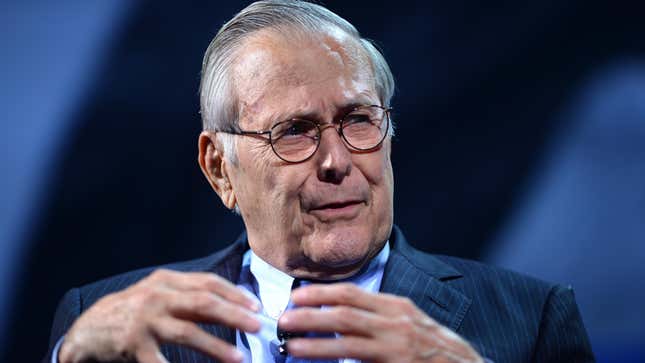Donald Rumsfeld, Complicit In The Deaths Of Countless Iraqi Civilians, Is Dead At 88
But his family is certain we'll all remember him for his "integrity."
EntertainmentEntertainment

Donald Rumsfeld, two-time Secretary of Defense and a major architect of the Iraq War, is dead at 88. Also dead: Well over 200,000 Iraqi civilians, and that’s just the reported figures.
Rumsfeld’s family confirmed his death via Twitter on Wednesday, noting that he was “surrounded by family in his beloved Taos, New Mexico.”
-

-

-

-

-

-

-

-

-

-

-

-

-

-

-

-

-

-

-

-

-

-

-

-

-

-

-

-

-

-

-

-

-

-

-

-

-

-

-

-








































